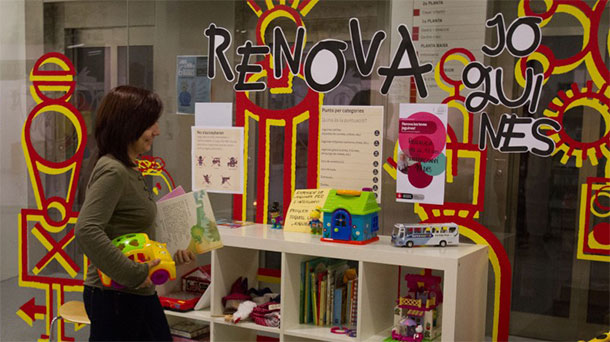- Home
- / Services
- / The city works
- / Maintenance of Public Areas
- / Waste management and cleaning services
- / Zero Waste
- / Reuse
- / Philosophy
Philosophy
Waste prevention has contributed to changing perspectives about some resources that used to be seen as waste and recognition of their potential for reuse and recycling in order to prolong their useful lives. It has even started to be seen as a business opportunity by certain sectors of the commerce and business worlds (e.g. second-hand markets).
Exchanging, reusing, second-hand markets and making good use of left-over food, for example, are actions geared towards prevention and reduction at source; a good way to make progress in minimising waste.
In many developed countries, the sale of second-hand resources, and not just clothes, has been progressively gaining market share, developing into an emerging economic sector. The application of sales strategies similar to those used for new products has showcased them and made them attractive to an increasing proportion of the population, and not just people on low incomes who cannot afford more expensive items. It is possible to modify the general public's perception in favour of prevention and reuse, by using communication strategies based on both their inherent social and environmental values, just like the most traditional economic and commercial attractions.

